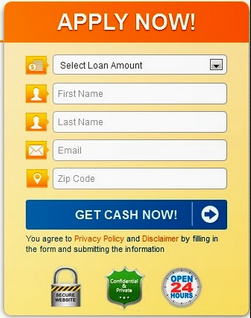Credit cards, car loans, or borrowing from friends can make us feel like we are stuck in a financial black hole. A payday loan can make us feel the same way if we aren't careful.
What is a payday loan anyway? It's an unsecured loan that is short-term and doesn't require the borrower to have good credit or any credit for that matter. Payday loans, also called "cash advances" have become quite popular over the years because they are easy to obtain with a fast approval and funding process. If you have a job, are over 18, get your paycheck deposited directly into your checking account and meet the lender's minimum income qualifications, chances are you will be approved for one of these quick cash loans.
Allright; the approval and funding part is easy but what about the part where you have to pay it back? Repayment terms for these types of loans are different than those of a personal loan with a bank, a cash advance on a credit card, or any other type of installment credit. Payday lenders will want you to pay them back with the paycheck you receive right after you borrow from them.
The lender will automatically withdraw your payment from your bank account which is why they require that you have direct deposit. In the event that you cannot make payment in full to your payday loan lender you will need to extend your loan. This is called a "rollover" which means you will have more time to pay, but will be charged high fees and interest as a result. So what started out to be a $200 loan could cost you twice that much once all is said and done and you have repaid your loan. Taking out a payday loan should be a solution to a temporary, short-term budgeting problem; not a debt trap.













